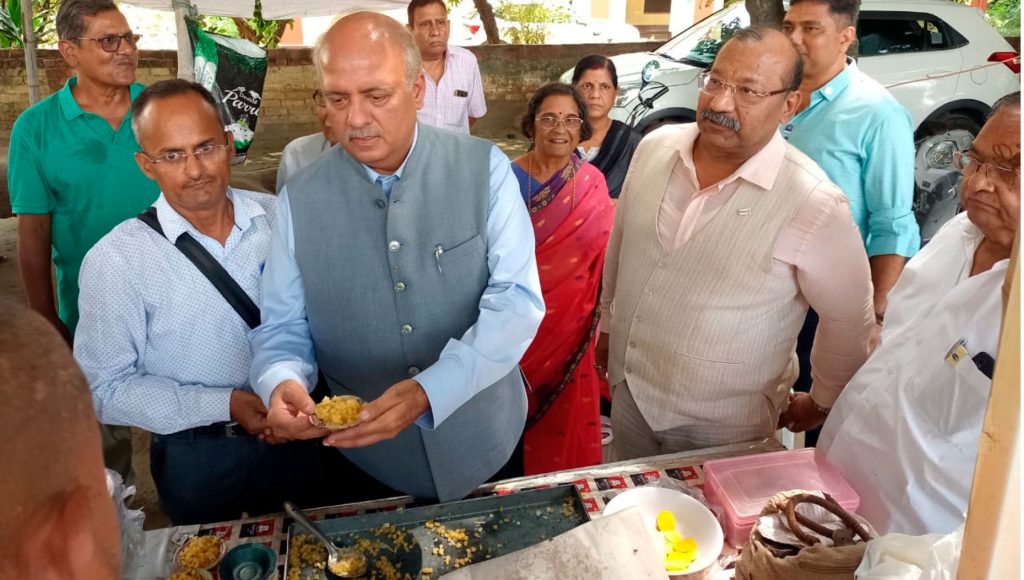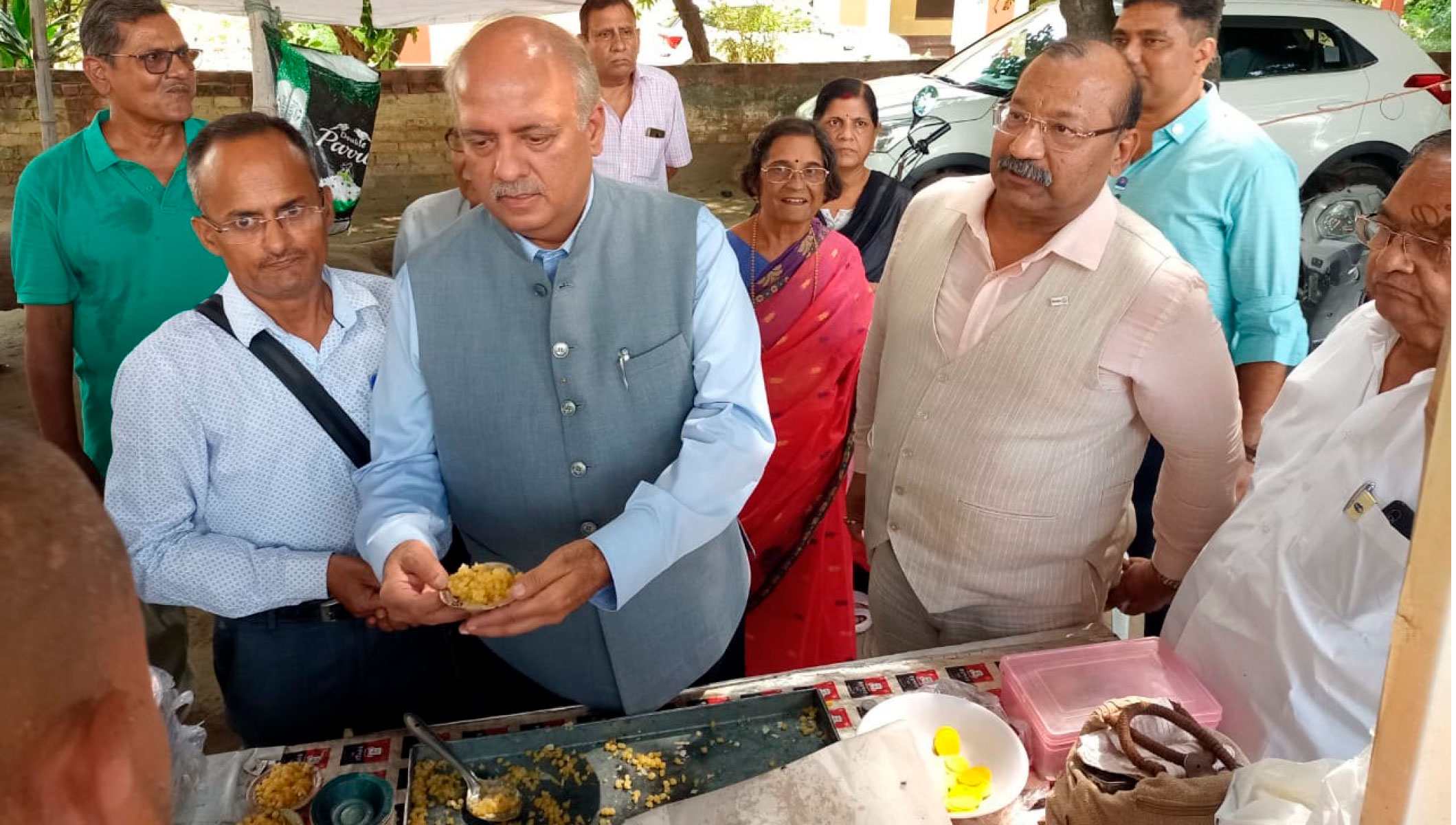
For Hari Krishna Tripathi, a former executive engineer from the Electricity Department, Lakhimpur, Uttar Pradesh, and his wife Madhulika, a dedicated social worker, mornings are far from typical. At the break of dawn, the Rotarian couple begin preparing for another day of running the Rotary Annapurna Rasoi (kitchen), a lifeline for hundreds of daily wage workers in Lakhimpur.
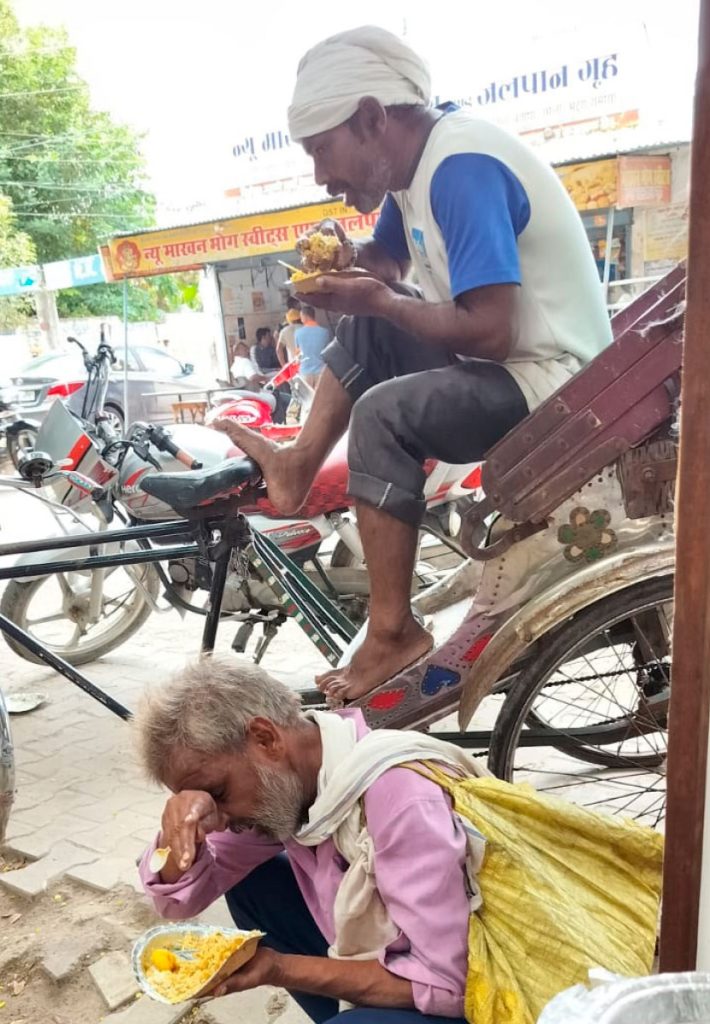
The idea for the Rasoi was sparked by a chance conversation he had with a rickshaw puller who, suffering from severe stomach pain, confessed that he often skipped meals because he simply could not afford them. The Tripathis were touched by the plight of the man and realised the pressing need to provide affordable, nutritious food to daily wage earners in the area. They pitched the idea to their club and in 2021, when the Covid pandemic hit the second time, RC Lakhimpur Kheri, RID 3120, spearheaded by the Tripathi couple, stepped up with “a simple yet transformative idea of a community kitchen that would provide nutritious meals for just ₹10,” says Tripathi.
“For those making as little as ₹500 a day, spending ₹80 or more for a meal at a dhaba was unaffordable. The ₹10-meal is more than just food, it provides relief and a sense of security,” he adds.
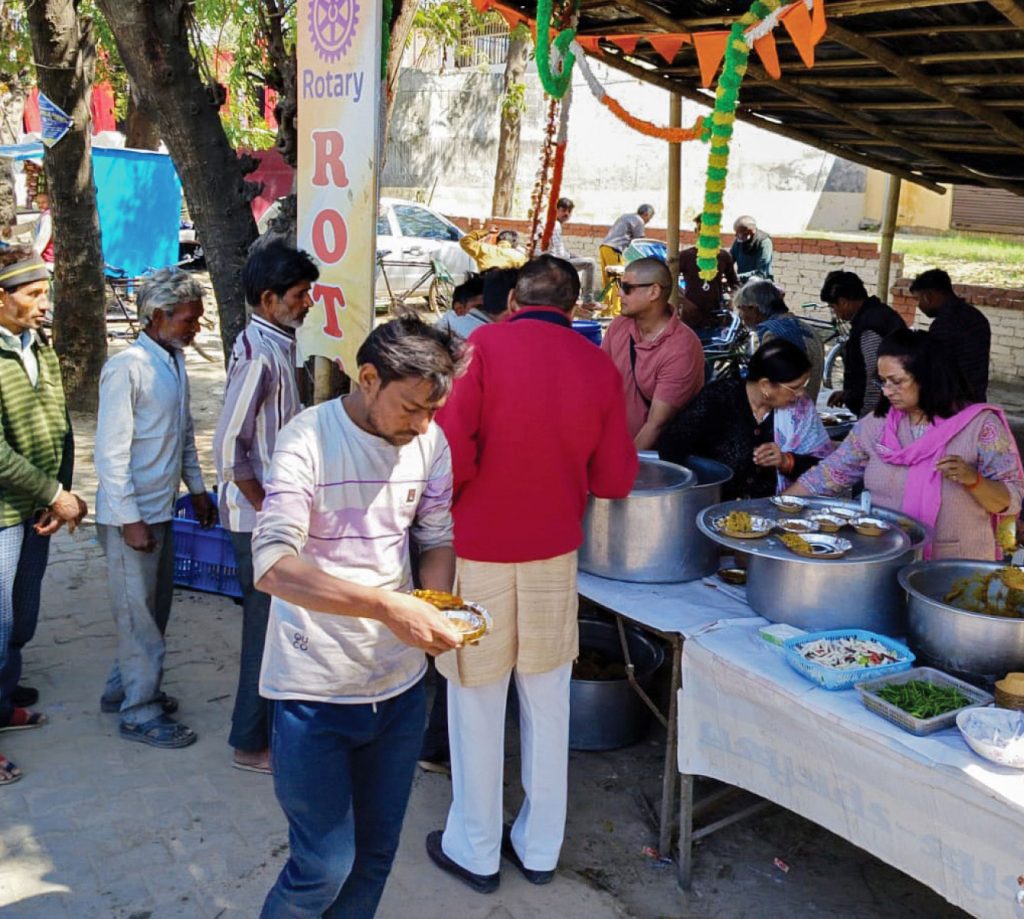
The Rotary Annapurna Rasoi started modestly with small donations from Rotary members and individual contributors. Understanding that large donations might be difficult for many, Hari Krishna and Madhulika encouraged people to give what they could. Today, the monthly operation cost of the Rasoi is approximately ₹1 lakh, including salaries of two women who cook the meals. Every day, they prepare 30–35kg of rice and 10kg of dal, feeding around 300 daily visitors who rely on this essential service.
“I make around ₹500 a day,” says Mukesh (55), a regular at the Rasoi. “If I spend ₹100 on food, I take home less money for my family. With a ₹10 meal, I can save more and do more for them. This meal helps stretch my earnings.”
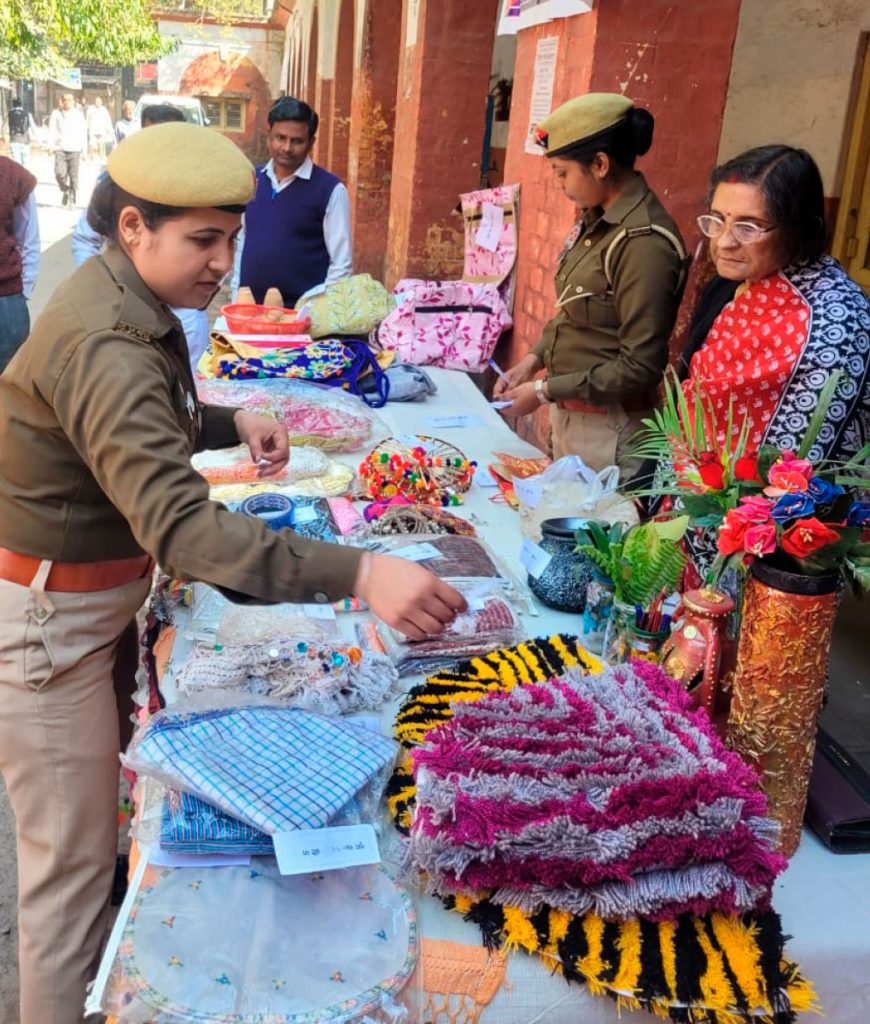
“The meals are simple but wholesome,” says Madhulika. Rotis and sabzi, rice with dal, rajma, or kadhi form the daily staple. “On special occasions, like Diwali and Navratri, the Rasoi goes a step further, offering a variety of dishes, fruits and a sweet to mark the festive spirit,” she adds. Madhulika ensures that those who come late, after the Rasoi is closed, don’t leave hungry. She prepares additional food in her own kitchen to feed anyone who might still be hungry.
Vocational training initiative
The Sankalp Hobby Classes, run by the Tripathi couple, empower young women with essential skills for financial independence. With 25 sewing machines funded through a global grant support with RID 5610, USA, the centre provides hands-on training in sewing, embroidery, mehndi, craft and beauty care. “Thanks to the sewing classes, I now earn close to ₹4,000 a month, which helps me support my family and my daughter’s education,” says Jothi Poonam, a beneficiary. Recently, the centre held an art exhibition featuring students’ work, with proceeds going toward its development.
Madhulika credits her husband’s “quiet and steady presence” in managing the accounts and logistics of both the Rasoi and the vocational centre. “When there are delays in payments or urgent material is needed, he steps in, often dipping into his own pocket. We couldn’t have come this far without him,” she says.
Recently, PRIP Shekhar Mehta visited both the Rotary Rasoi and the Sankalp Hobby Classes in Lakhimpur. “He was impressed by what he saw and appreciated our dedication. He also served meals,” smiles Madhulika. For the Tripathis “this is simply the essence of being Rotarians. We are doing what every Rotarian does. It is absolutely fulfilling to experience the joy of service,” she says.






